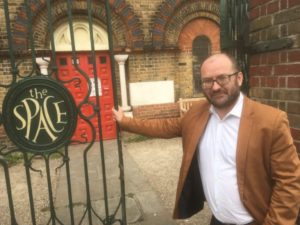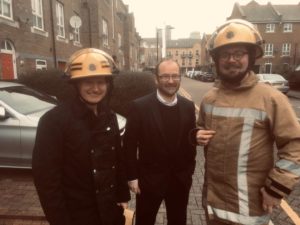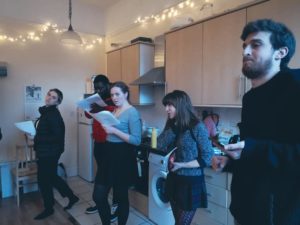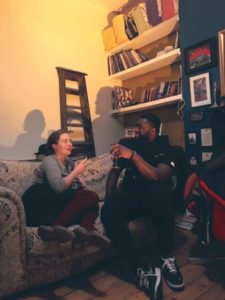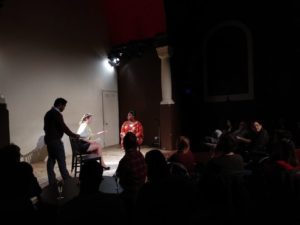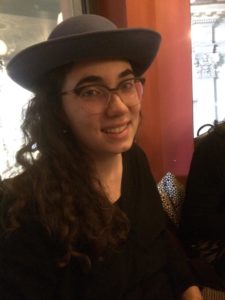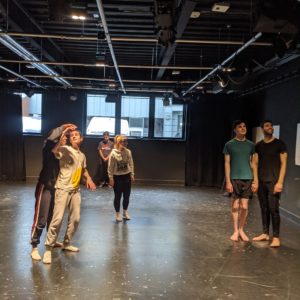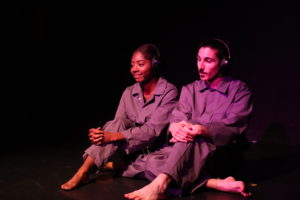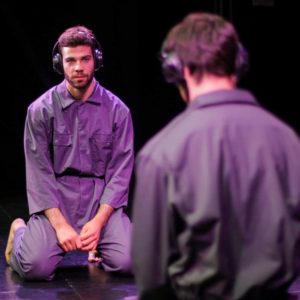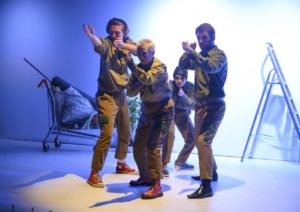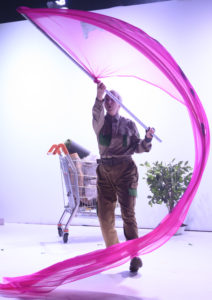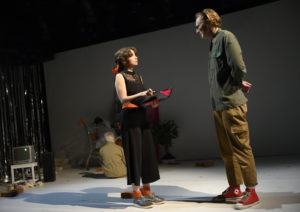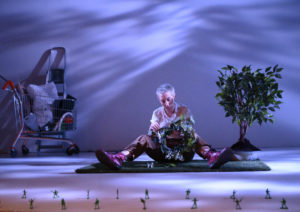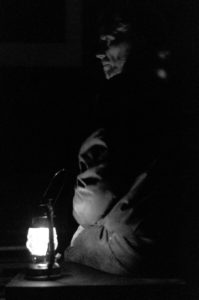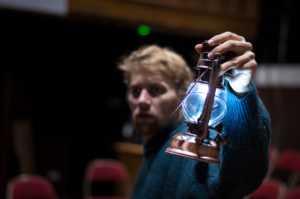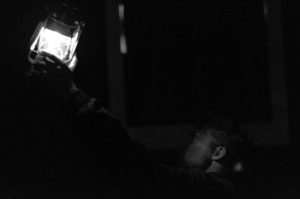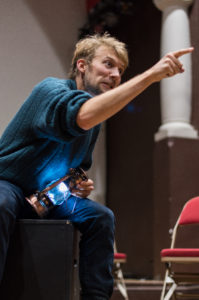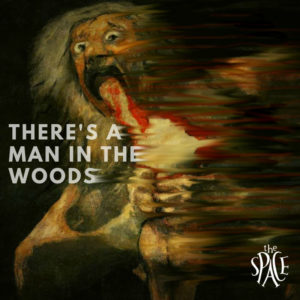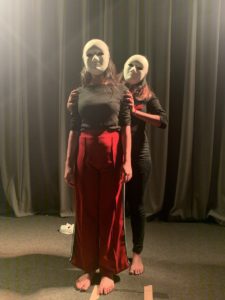This week we had the chance to sit down with Francis Grin, writer and dramaturg of Mrs. C’s Collective’s upcoming production of That Was All.
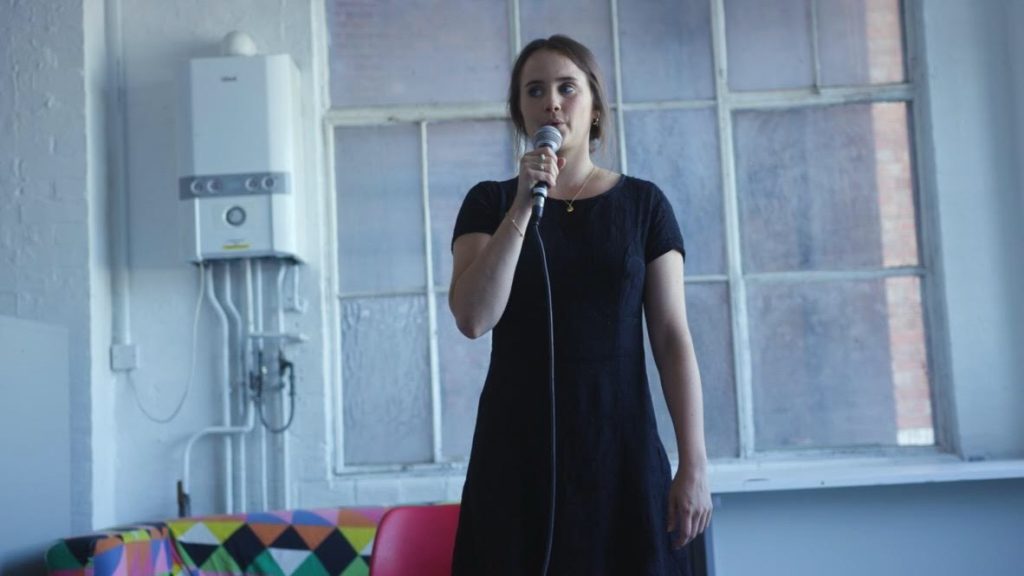 Jennie Eggleton in rehearsal for That Was All (Credit Maxim Levy)
Jennie Eggleton in rehearsal for That Was All (Credit Maxim Levy)
Firstly, tell us a little bit about That Was All, how did you create this story?
That Was All is a play about a young woman who, like most of us at some point, has a major loss in her life. In her quest to come to terms with it, she meets a very eccentric spiritual healer and goes on a bizarre journey, somewhere between reality and memory. At the heart of it, this play asks, ‘how do you deal with grief when you don’t have a firm belief system or religion to fall back on?’
Like most of my stuff, I haven’t quite trained my imagination to go beyond my personal experience! Yes, this play is *slightly* autobiographical. Growing up, my parents, both agnostics, encouraged me to figure out my own spiritual beliefs rather than forcing anything on me. They weren’t anti-religion either, my mum even tried to get me to read the Bible (I didn’t have the attention span, sadly). Being agnostic felt okay until my dad died. I couldn’t make sense of it and just didn’t understand how he wasn’t around anymore. On top of that, I’d developed some body pains. I got in touch with a chiropractor who introduced me to a lot of holistic healing. I’d hang around after sessions and we’d talk about life, death, the meaning of it all – stuff I would have never been able to discuss with my friends with a straight face.
One day he asked me for a favour which involved spending a day translating for a Mexican healer. A man who had thousands of followers and could apparently cure people just by looking at them. I wasn’t sure what to think. Still, even if this world felt totally bizarre, I found myself in a space where I could finally process some of my grief.
That Was All has been performed previously, but your editing process is continuous, how does your writing evolve?
Like most plays, at the beginning it was just me sitting in a room with a concept and some loose ideas on how that should be executed. But once I started working with Charlotte and Jennie, the process naturally evolved into something else. My current editing process involves having a lot of chats with our team, trying to answer questions. Mike Carter has sent us some cracking questions that we’ve endlessly been talking about! I’ll then use these conversations as a starting point for a bit of solo editing.
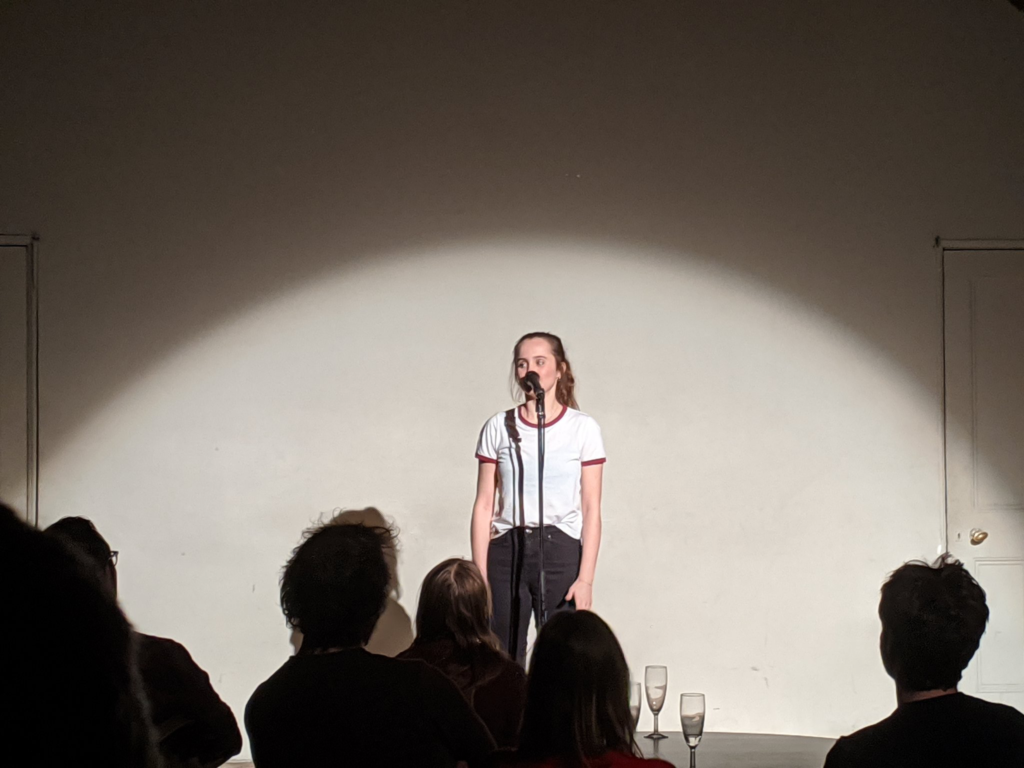 That Was All at the Space’s Spring Season Launch party, January
That Was All at the Space’s Spring Season Launch party, January
Fans of the Space will remember your hit Welcome To Mine (Two Fest 2020), is it fair to say there are a couple of parallels: New Age behaviours; Loss; The struggle for one’s identity?
I don’t think I’ve ever had a ‘hit’ so thanks for that! Definitely. Loss/death is a huge subject in my plays. It feels like one of the most ungraspable elements in my life. Going from having daily conversations with someone to picking out their casket. It’s all kinds of bizarre. In a way, death in both these plays is like the ‘third guest in the room’. Silent, yet present and the characters do a good job of getting through life ignoring them. It’s the reason why they do many of the things they do. Whether it’s watching reruns of The Bachelor, a shopping spree, drunken Samba dancing, a new vegan diet or a questionable series of exercises – anything feels better than facing the unknown.
You want your characters to “Make Sense of The Unspoken”, how do you write the unspeakable?
I think you write it by exhausting your characters’ distractions. Exhausting the rituals they carry out to avoid ‘the unspeakable’ (which in this case is death). Eventually everyone runs out of new episodes of Netflix, shopping sprees, the diet or new exercise regime eventually breaks down, the meditation becomes a ball-ache and the pub crawl comes to an end. And then we’re just left in our own silence.
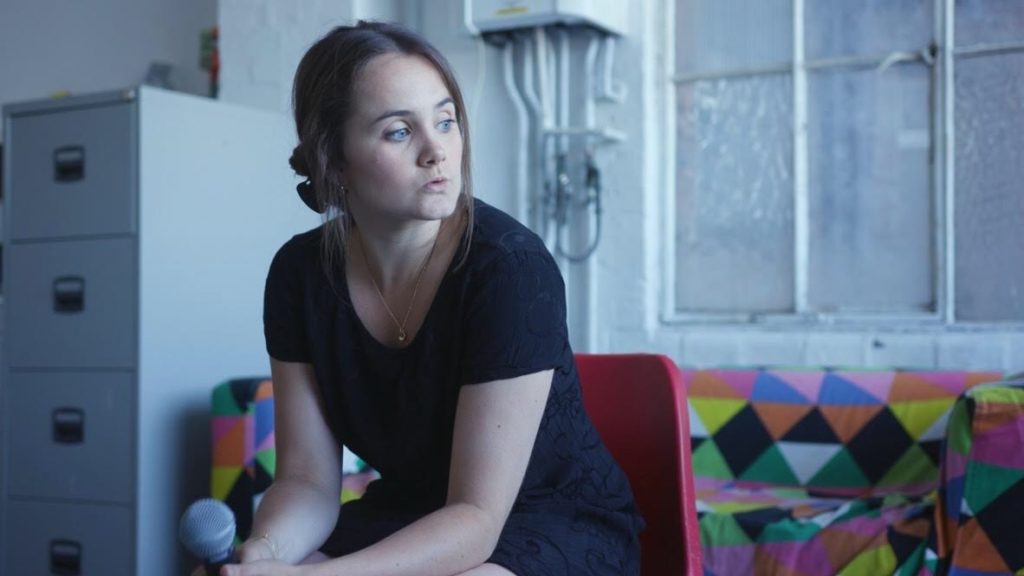 Photo by Maxim Levy
Photo by Maxim Levy
How do you craft a world of characters, relationships and interactions through just one actor?
I think it’s about writing out these characters with a set perspective in mind. At the end of the day, we’re seeing these characters through one viewpoint – and so they all exist in the space of a single reality and memory. Our actor, Jennie is really skilled at this and understands that part of creating these different characters isn’t just about looking at who they are and what their motivations are – but also what her own character’s view towards them is.
As part of Mrs C’s Collective, you are credited as both company Writer and Dramaturg, how do each of these roles inform the work you create?
When I’m in my writer’s mode, I have to shut off all criticisms and go with wherever my gut is taking me. I really struggle to be creative and critical at the same time. I think most of us do. But then, as a Dramaturg I can take a few steps, see the bigger picture of the play, and enter a more critical mode. I almost see the writer role as being stuck in the middle of the play, whereas the dramaturg is looking over the whole room, seeing all the bits and pieces. Most of the writers I work with naturally take on both these roles, and it’s about knowing when the timing is right for one role or another.
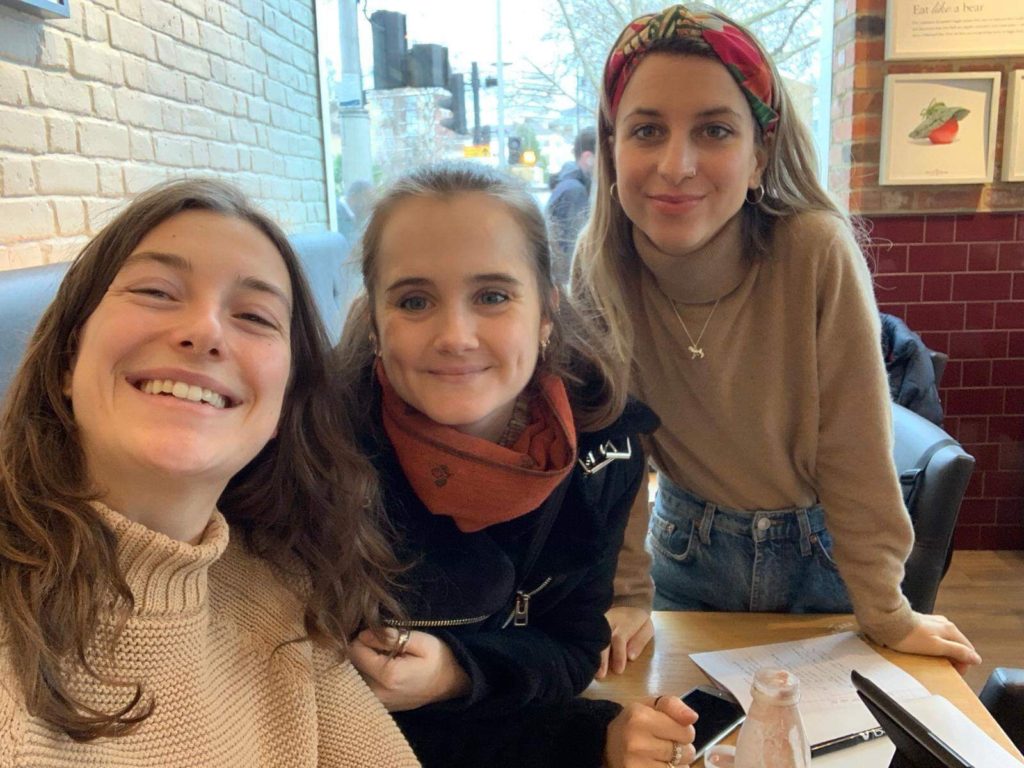 Mrs C’s Collective (L to R):
Mrs C’s Collective (L to R):
Charlotte Everest, Director; Jennie Eggleton, Actor; Francis Grin, Writer/Dramaturg
Any advice for emerging writers?
I think dealing with rejection and criticism is one of the toughest ordeals that any emerging creative has to grapple with. If you’re working and putting yourself out there, it’s impossible to avoid either. So rather than trying to avoid criticism, I recommend getting a few good coping techniques that work for you. Also, find a support system. Other creatives, supportive friends/family and people who ‘get it’.
And finally, part of the play deals with a pub crawl, tell us about your perfect pub.
Any pub that serves a good Sunday roast is perfect in my book. Comfy seating and a fireplace are also a win. Can you tell I live on the edge?
That Was All – 31st March – 4th April 2020

Click here to book for
THAT WAS ALL
